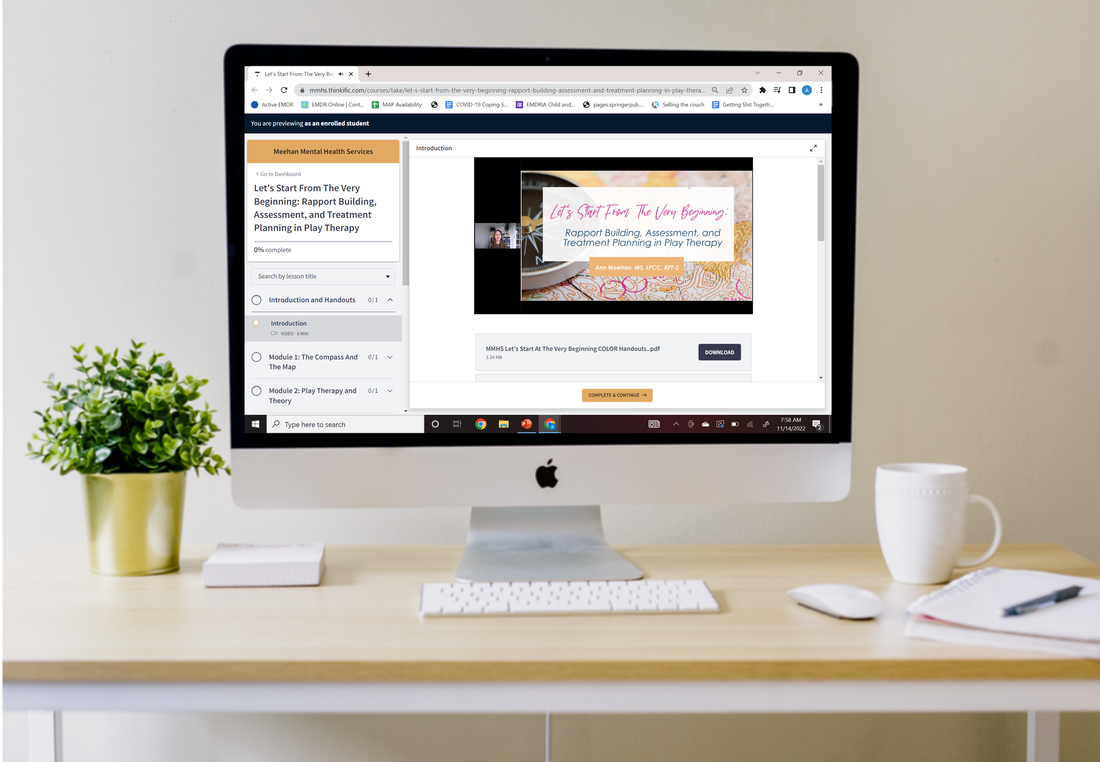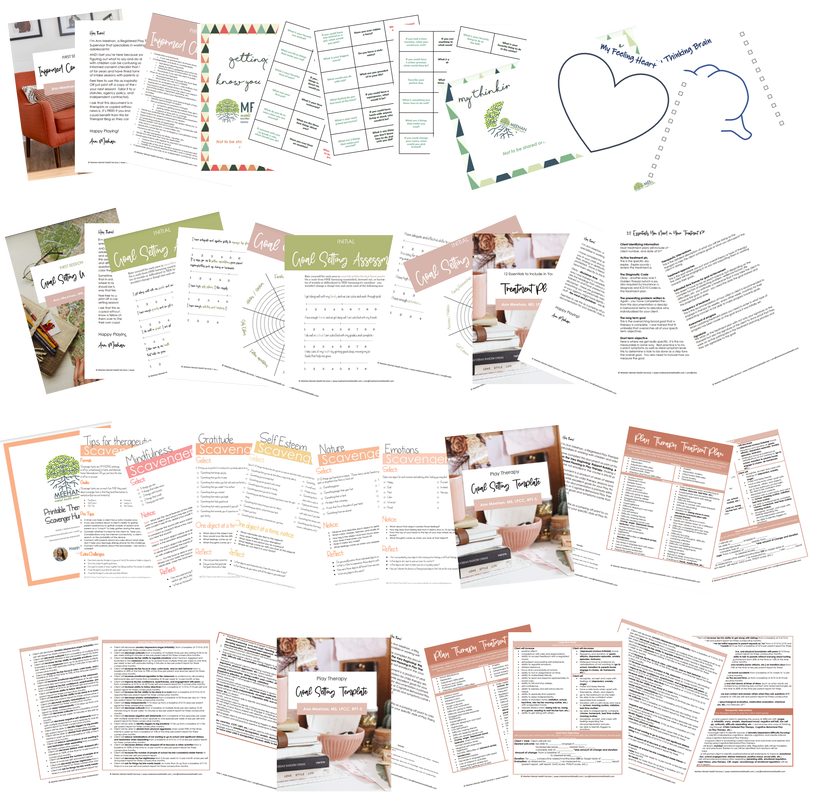|
You see it.
An unfamiliar name of a new intake on your schedule. You can’t help but think about the heavy lifting that happens during the intake process. How exhausting and overwhelming it feels to simultaneously try to accurately diagnose your new client and fill out all the required paperwork while at the same time building rapport and relationships with the young person and their family. You might spend more time talking to the parent than the child to get the necessary information and struggle to connect with the young person in front of you. You aren’t quite sure what to say, the intake can feel like rapid fire questions, and your usual go-to assessments are feeling a bit...stale. Maybe you don’t even have “usual go-to” Play Therapy based assessments! Maybe you have tried an intervention from Pinterest or from a Facebook group but you feel like you need more. And after all of that, when you try to juggle getting enough information to write the intake all while trying to build rapport, some things just slip through the cracks. Like when four sessions in and parents tell you they need an evening spot or they can’t continue therapy or you run into therapy roadblocks only to find out about preverbal trauma you didn’t ask about during the assessment that is the puzzle piece that fits everything together. Ahh - it all makes sense now! Maybe you can relate. Sometimes it might be a young person who is too anxious to say anything, clings to their parent, and won’t let their parent leave the room. Other times it might be the young person who gives you a cold stare with arms crossed and tells you they don’t want to come to therapy but their parents are making them. Session two hits and you're scrambling to wrap up the assessment as well as identify quantifiable goals. And sometimes goal setting can honestly feel like pulling teeth. You’re sitting all bright eyed and optimistic asking the client what they would like to see differently in their life and you get met with a great big “I don’t know”. Maybe even a shrug or a blank stare. Sometimes it can even be a challenge for young people and their parents to agree on just what brought them to therapy let alone agree on what they want the outcome of therapy to be. When you add in needing to write treatment plan goals that are written in measurable behavioral terms it can be overwhelming. Sadly "feel better" or "live their best life" doesn't count. You aren’t sure what exactly to write and how to pair your goals with Play Therapy interventions and techniques. You just want to get to the "good stuff". The Play Therapy work that you know is so essential for healing young people and all of the intake work that goes into the assessment feels like big barriers that get in the way of the work of Play Therapy. But... Did you know that the first few sessions with clients is what distinguishes good therapy from great therapy? And that clients (and their parents) are forming opinions about us the first milliseconds that they meet us. And what about the tiny (but oh so important) fact that the relationship you develop with clients is the number one factor for client change and progress towards goals. Ok - so the intake, assessment, and goal setting process is pretty darn important. Now, imagine this…
How would your practice change if you could head into your first sessions prepared and confident with a clear head and a plan? What about having the ability to help clients and families see exactly how they are progressing on goals and increase client engagement, retention, and hope? In the course Let’s Start From The Very Beginning: Rapport Building, Assessment, and Treatment Planning in Play Therapy you will learn over 20 Play Therapy techniques for building rapport and engaging in assessment and treatment planning. My intake process with clients has been fine tuned over hundreds of intakes and well over a decade of practice. I developed my new training Let’s Start At The Very Beginning: Rapport Building, Assessment, and Treatment Planning to guide you in the most up to date neuroscience that informs my rapport as well as my exact intake systems and treatment planning templates and guides. Oh, and of course tons of Play Therapy techniques and activities to engage clients with the Powers of Play! In this course you will learn:
|
|
You also won’t walk away empty handed. Inside the course you get to swipe my favorite templates, systems, cheat sheets, and Play Therapy techniques including:
|
|
Want to learn more? Check out the details below!
|
|
CE Information:
This course is approved for 4.5 APT Non-Contact hours by Meehan Mental Health Services (APT Approved Provider 19-580). Learning Objectives:
Course Format: Train when it works for you! This course is a pre-recorded online self paced course where the modules are broken up into smaller digestible chunks that can be completed during a client cancellation, on the weekends, early in the morning, late at night - whenever! You can login at your own pace, re-watch content, and have unlimited access to the course. This course is designated "Non-Contact" by the Association for Play Therapy. Who should attend: This program is a beginning to intermediate course for Play Therapist and therapists that work with children and adolescents who want to improve in skills of play based assessment, rapport building, and goal setting. This training is also appropriate for therapists who want to improve their ability to give a detailed informed consent, increase their assessment skills, and set clear and measurable goals. Cost: $97.00 |
Course Presenter
|
Hi! I'm Ann - or formally Ann Meehan, MS, LPCC, RPT-S, EMDRIA Consultant. I work as a private practice therapist in the north woods of Minnesota and specialize in working with young people ages 3 and up using Play Therapy and EMDR. I have a library of trainings and run The Playful Therapist Blog. Overall I am passionate about helping other therapists grow into competent and confident Play Therapists, trauma therapists, and child and adolescent therapists. |
Please email [email protected] with questions or concerns.
Play Therapy Credit may not be awarded to non-mental health professionals. There are no refunds for this recorded course.
See Meehan Mental HealthServices full policies and procedures for online and in person trainings here.























